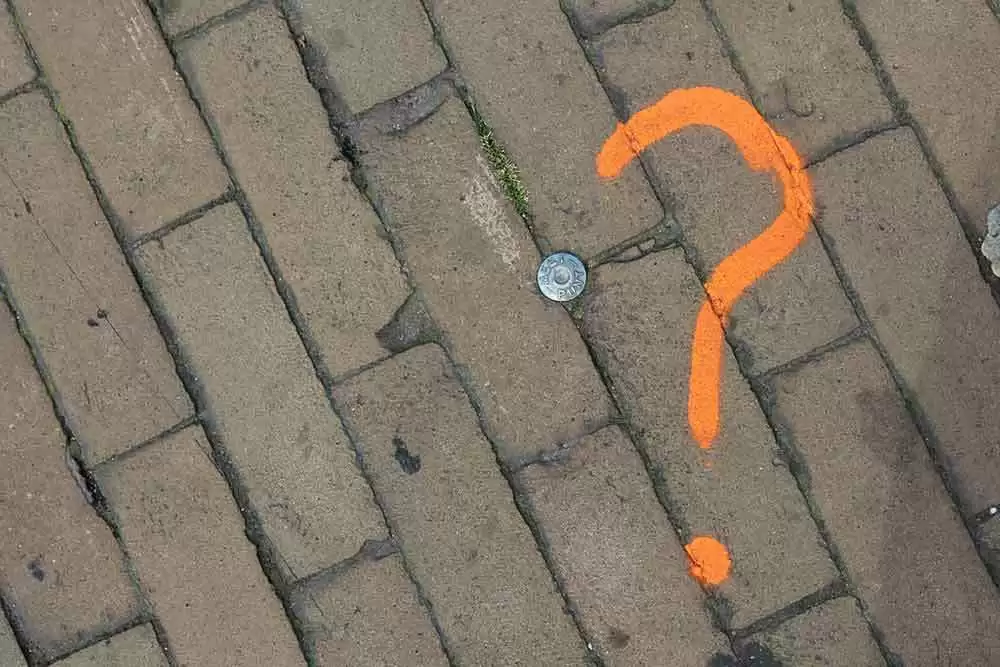
Celiac.com 11/07/2019 - Despite major improvements in awareness and testing, it can still take years to get a proper celiac disease diagnosis, in part because other diseases can cloud the issue. Often, doctors suspect, or even diagnose, other diseases before the patient's celiac disease is revealed. It’s easy for doctors, and even patients, to simply stop with one of these other diagnoses, causing unnecessary delays in a celiac diagnosis.
Celiac disease is often confused for one or more of these twenty-one diseases. In many cases, patients can get one or more diagnoses for these conditions before finally being diagnosed with celiac disease. People with one or more of these conditions might want to get screened for celiac disease, especially if they have any celiac-related symptoms.
Here are twenty-one diseases commonly suspected or diagnosed before celiac disease is discovered:
-
ALLERGIES
Many people find themselves wrongly diagnosed with environmental allergies long before they are diagnosed with celiac disease. -
CANKER SORES
Study data published in BMC Gastroenterology indicate that aphthous stomatitis, commonly called canker sores, can be the sole symptom for about one in twenty people with celiac disease, so it makes sense to perform celiac screening these people. Anyone with canker sores and any of the myriad symptoms of celiac disease would be advised to check for celiac disease. -
LACTOSE INTOLERANCE
Lactose intolerance is a common condition. In some cases, people discover their lactose intolerance after their celiac diagnosis. That’s because mucosal damage from gluten can leaves celiac patients unable to digest lactose. This can last until the gut fully heals, and many different foods may trigger adverse symptoms until full healing occurs. Some people see their lactose intolerance improve and even vanish after adopting a gluten-free diet. Probably, their gut is healed thoroughly enough that they no longer react. However, if you suspect celiac disease and are diagnosed with lactose intolerance, then consider pressing for a celiac disease screen, just to be sure. Especially if you still have symptoms after going dairy-free. -
IBS/IBD
It’s been recently reported that celiac disease is uncommon in people with irritable bowel syndrome, so there's no need for routine celiac testing in IBS patients. However, for a proper diagnosis of IBS, it’s important to first rule out the presence of celiac disease. For this reason, anyone suspecting IBS should get checked for celiac disease, just to be sure. -
MENTAL ISSUES
Many people with celiac disease suffer from mental issues, or psychiatric disorders such as anxiety and depression. We also know that a gluten-free diet can help to relieve some symptoms of schizophrenia. In some cases, especially in those without classic celiac symptoms, these psychiatric disorders can be among the few symptoms, and can make celiac disease difficult to diagnose. Moreover, many doctors attribute symptoms of celiac disease to psychosomatic causes. That is, they think it’s all in the patient’s head. Anyone who suffers from mental health issues along with celiac disease symptoms should probably get checked out for celiac disease. -
THYROID DISEASE
Thyroid disorders are common in people with celiac disease. People with celiac disease have much higher rates of autoimmune thyroid disease than the regular population. For this reason, anyone diagnosed with autoimmune thyroid disease should be screened for celiac disease just to be sure. -
GALLBLADDER DISEASE
It is not uncommon for people with celiac disease or gluten intolerance to have their symptoms attributed to gall bladder disease. Occasionally, this can lead to removal of the gall bladder, which may not result in symptom improvement. Anyone with celiac-associated symptoms who receives a diagnosis of gall bladder disease might want to get screened for celiac disease, just to be sure. -
AMOEBA/PARASITE/INFECTION
Celiac disease symptoms can mirror symptoms of certain gut parasites, which is one reason that many people with celiac disease find themselves being checked for parasites long before they get checked for celiac disease. -
COLITIS/SPASTIC COLON
Another common culprit for misdiagnosis is colitis, which shares many symptoms with celiac disease. Similarly, many people who actually have celiac disease find themselves with a diagnosis of “spastic colon.” -
ACID REFLUX/GERD
People with GERD don't have any higher rates of celiac disease than the rest of the population. However, to be fair, a pretty high percentage of newly diagnosed celiac patients have reflux and/or esophageal dysmotility; which might explain the high prevalence of reflux symptoms in celiac disease patients, and the common misdiagnosis of GERD. If your symptoms persist, consider getting checked out for celiac disease. -
PSYCHIATRIC DISORDERS
In many cases, celiac disease symptoms can be so hard to pin down that doctors find themselves wondering if the symptoms aren't really in the patient's head. In their quest for diagnosis, many people with celiac disease have been referred to a psychologist, rather than evaluated for celiac disease. -
CHRONIC FATIGUE
For these reasons, it’s important for patients diagnosed with anemia, especially unexplained anemia, to be checked out for celiac disease. Also, anyone with unexplained fatigue might want to press their doctor for a celiac disease screen. Many people with celiac disease report recurrent fatigue as one of their symptoms. Sometimes, fatigue can be one of the few or only symptoms, making celiac disease difficult to diagnose. Fatigue can be caused by low-iron, which can be a sign of anemia. Often, though, doctors simply diagnose anemia as the cause of the problem, rather than seeing it as a potential sign of celiac disease. -
WEIGHT GAIN
Classic celiac disease patients commonly suffered weight loss or low body weight. That has changed. These days, it is much more common for patients with normal or high BMI to have celiac disease. There’s also some evidence that obesity plays a major role in triggering autoimmune disease. For these reasons, physicians should not discount the possibility of celiac disease based solely on BMI.
Screening Versus Symptoms: Does Detection Method Affect Body Mass For Celiacs on a Gluten-Free Diet?
How can I be overweight with Celiac? -
CYSTIC FIBROSIS
Cystic fibrosis is another disease with some symptoms, such as big appetite but poor weight gain, and bulky, smelly, greasy bowel movements, that can sometimes be blamed for celiac disease. Rates of celiac disease are about triple for patients who also suffer from cystic fibrosis, compared to those without cystic fibrosis. That’s why it’s important that people diagnosed with cystic fibrosis receive a screen for celiac disease. -
DIABETES
Numerous studies have shown connections between celiac disease and diabetes. In fact, researchers have found that celiac disease often precedes Type 1 diabetes in children with both conditions, and that up to 10% of children with Type 1 have clinical celiac disease. For this reason, it’s a good idea for people with diabetes to be screened for celiac disease, especially if they are suffering any type of celiac-associated symptoms. -
STRESS
Also, there’s some evidence for a strong correlation between childhood stress and trauma, and the presence of celiac disease in adults. Being diagnosed with a stress-related disorder, such as post-traumatic stress disorder, acute stress reaction, adjustment disorder, and other stress reactions, was significantly associated with an increased risk of autoimmune disease, compared with matched unexposed individuals. For these reasons, it’s important for people with celiac-like symptoms, who receive a diagnosis of stress, to be checked out for celiac disease. -
ANEMIA
We also know that doctors are likely primary care physicians are likely under-testing for celiac disease in patients with iron deficiency anemia. For these reasons, it’s important for patients diagnosed with anemia, especially unexplained anemia, to be checked out for celiac disease. We know that celiac disease is common in cases of unexplained iron-deficient anemia. Read more on Anemia and Celiac Disease -
VIRUS (VIRAL GASTROENTERITIS)
Another very common thing doctors suspect long before they suspect celiac disease, is viral gastroenteritis. -
CANCER/LYMPHOMA
Certain types of cancer and/or lymphoma are strongly associated with celiac disease. For example, patients with celiac disease over five years showed higher rates of non-Hodgkins lymphoma, small-intestinal cancer, colon cancer, and basal cell carcinoma of the skin. That’s why it’s important for people with such types of caner/lymphoma be screened and evaluated for celiac disease. -
SKIN CONDITIONS
Having celiac disease can leave people at much greater risk for various skin conditions. People diagnosed with one of the following seven skin conditions commonly associated with celiac disease might want to consider getting checked out for celiac disease. -
PELLAGRA
Pellagra is a disease caused by low levels of niacin, also known as vitamin B-3. It's marked by dementia, diarrhea, and dermatitis, also known as “the three Ds.” Because the symptoms of diarrhea and skin rash are similar, pellagra can be mistaken for celiac disease. Pellagra is easily treated with niacin supplements, but it's crucial that it is treated, otherwise it can be fatal. The two conditions can also co-exist, so anyone who is receiving enough niacin, but still presents celiac-like symptoms should likely be checked out for celiac disease.











Recommended Comments
Create an account or sign in to comment
You need to be a member in order to leave a comment
Create an account
Sign up for a new account in our community. It's easy!
Register a new accountSign in
Already have an account? Sign in here.
Sign In Now